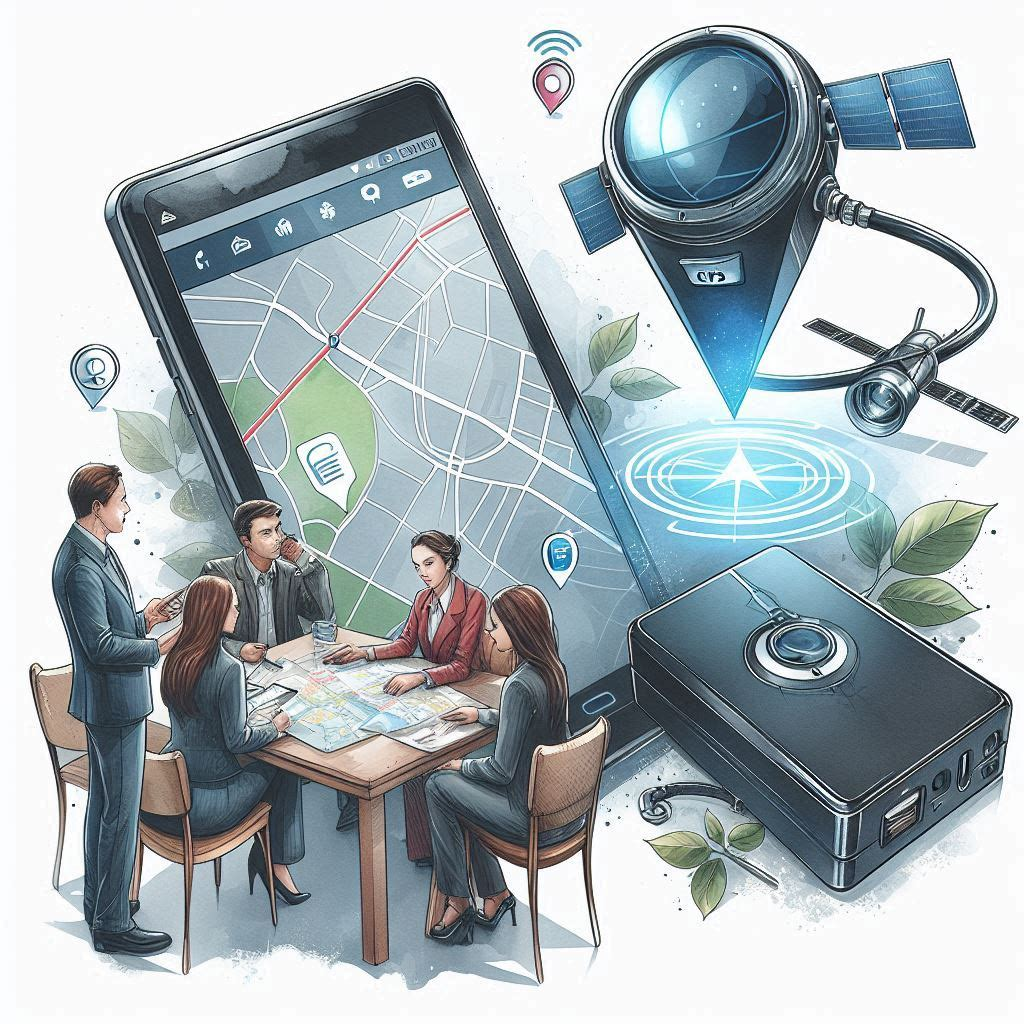In recent months, the Mediterranean island of Cyprus has experienced significant disruptions due to GPS jamming, affecting everything from everyday smartphone apps to critical navigation systems in aviation and maritime operations. As tensions escalate in the Middle East, powerful signal jammers have been employed to confuse and mislead GPS-based systems, leading to inaccurate location data and operational challenges. This interference has caused confusion among residents, disrupted delivery services, and created navigation difficulties for pilots and ship captains.
Understanding GPS and its Importance
Global Positioning System (GPS) is a satellite-based navigation system initially developed by the United States Department of Defense. It consists of a network of satellites orbiting the Earth, transmitting signals to GPS receivers on the ground.
These signals help determine precise locations by calculating the time it takes for the signals to travel from the satellites to the receivers. GPS is widely used in various applications, from navigation for vehicles, planes, and ships, to everyday tasks like using maps on smartphones.
GPS has become a cornerstone of modern infrastructure. It is relied upon for navigation, timing synchronization, and various communication systems. However, despite its widespread use, GPS technology has certain vulnerabilities, especially because the signals transmitted from satellites are relatively weak by the time they reach Earth.
The Role of Space Technology in GPS Jamming
Space technology is integral to GPS systems, but it also plays a significant role in GPS jamming. GPS jammers are devices designed to disrupt or interfere with the signals sent from GPS satellites to receivers on the ground. These jammers emit radio frequencies that can overpower or distort the signals coming from the satellites, causing the GPS receivers to either lose their ability to determine accurate locations or, in more sophisticated cases, to “spoof” incorrect locations.
GPS Jamming Basics
GPS, or Global Positioning System, operates using a network of satellites orbiting the Earth. Each satellite continuously transmits signals that include the satellite’s location and the precise time the signal was sent. GPS receivers on the ground, such as those in smartphones or car navigation systems, pick up these signals to determine their exact location by calculating how long it took for the signals to travel from the satellite to the receiver.
The signals sent by GPS satellites are very weak by the time they reach the Earth’s surface. To give you an idea, the strength of a GPS signal is often compared to the power of a small household light bulb—about 20 to 50 watts. Once these signals travel the vast distance from space (over 20,000 kilometers or about 12,000 miles), they become even weaker. When they arrive on Earth, their power is just a fraction of a watt—about one ten-billionth of a watt.
Because these signals are so weak, they are susceptible to interference from stronger signals generated on the ground. This interference can come from various sources, such as environmental factors, but more dangerously, from deliberate actions like GPS jamming.
US Has developed the Space Jammers to Protect itself from the Space Espionage Attempts
How GPS Jammers Work ?
A GPS jammer is a device specifically designed to disrupt the reception of GPS signals. It does this by transmitting a signal at the same frequency as the GPS signals but at a much higher power level. The key idea is to overpower the legitimate GPS signal so that the receiver cannot pick it up correctly.
GPS signals operate at specific frequencies within the radio spectrum. A GPS jammer targets these exact frequencies, broadcasting a noise or false signal that drowns out the legitimate GPS signal. Imagine trying to listen to a soft-spoken person in a room while someone else starts shouting loudly; the shouting makes it impossible to hear the soft-spoken person. Similarly, the jammer’s powerful signal overshadows the weak GPS signals, making them undetectable by the receiver.
The jammer’s signal is much stronger than the GPS signal when it reaches the receiver. This overpowering effect prevents the GPS receiver from recognizing the correct signals from the satellites. As a result, the GPS receiver either fails to determine a location or, in more sophisticated jamming scenarios, might be tricked into calculating a false location.
Military Applications of GPS Jamming
In conflict zones, GPS jammers are crucial tools for disrupting enemy operations. They are primarily used to protect against missile strikes and drone attacks that rely on GPS for navigation and targeting. By interfering with GPS signals, these jammers can prevent enemy drones and missiles from reaching their intended targets, thereby providing a defensive shield for military assets and critical infrastructure.
GPS Spoofing: How War Zone GPS Attacks Threaten Civil Aviation
The use of powerful GPS jammers in military conflicts, such as those in the Middle East, often has unintended consequences for civilian systems. The signals from these jammers can be so strong that they affect GPS receivers far beyond the intended military targets. This has led to commercial planes, ships, and even civilian devices like smartphones and car navigation systems being thrown off course.
Middle East Conflicts
In the ongoing conflicts in the Middle East, particularly in areas around Israel, Lebanon, and Gaza, GPS jamming has become increasingly common. Military forces in these regions, including Israel, have deployed jammers to protect against threats from groups like Hezbollah and other adversaries. These jammers are not only used to disrupt GPS-guided missiles and drones but also to confuse or disable enemy navigation systems during military operations.
Dangerous Deception of GPS Spoofing by Israel in the Middle East Skies
For instance, during the conflict between Israel and Hezbollah, GPS jammers were used extensively to neutralize potential drone and missile attacks. These jammers inadvertently caused significant disruptions in civilian GPS systems across the region. Residents in Cyprus, far from the conflict zone, found their GPS devices misreporting their locations, often placing them in Beirut, Lebanon, instead of their actual location on the island.
Aviation and Maritime Disruptions
The disruptions caused by GPS jamming underscore the vulnerabilities in modern navigation systems. Both aviation and maritime sectors are increasingly dependent on satellite-based technologies, and any interference can have far-reaching consequences on safety and operational efficiency.
Impact on Aviation
Pilots rely heavily on GPS for precise navigation, especially when flying over vast expanses of ocean or unfamiliar terrain. GPS provides real-time positioning data that helps in charting the aircraft’s course, ensuring it remains on the correct flight path, and coordinating with air traffic control. However, when GPS signals are jammed, these systems can display incorrect positions, forcing pilots to revert to older, less precise methods of navigation.
Vulnerable Skies: How GPS Jamming Endangers Aviation Safety
To counteract the disruptions caused by GPS jamming, pilots and air traffic controllers must rely more on radar systems and other traditional navigational instruments. These include inertial navigation systems (INS) and radio navigation aids like VOR (VHF Omnidirectional Range) and DME (Distance Measuring Equipment). Although these systems are robust, they lack the real-time updates and precision of GPS, making navigation less efficient and potentially more error-prone.
Disruptions in GPS can pose serious safety risks, particularly in busy airspace or near airports where precise positioning is crucial. Incorrect GPS data can lead to navigation errors, flight path deviations, and difficulties in maintaining safe distances between aircraft. This has prompted increased vigilance and adjustments in air traffic management practices to mitigate the risks associated with GPS interference.
Impact on Maritime Navigation
Similarly, maritime navigation heavily relies on GPS for route planning and tracking. GPS provides essential data for plotting courses, avoiding hazards, and ensuring safe navigation through busy shipping lanes. When GPS signals are jammed, ships may experience incorrect location data, affecting their ability to follow planned routes accurately.
In the absence of reliable GPS data, many ship captains have reverted back to traditional navigational methods such as using nautical charts, radar, and visual observations. These methods are less precise and more cumbersome compared to GPS-based navigation, increasing the risk of accidents, especially in congested or hazardous waters.
The impact of GPS jamming on maritime navigation can lead to significant operational disruptions, including delays in shipping schedules, increased risk of collisions, and challenges in coordinating with port authorities. The reliance on less accurate navigation systems can affect the efficiency of maritime operations and overall safety.




